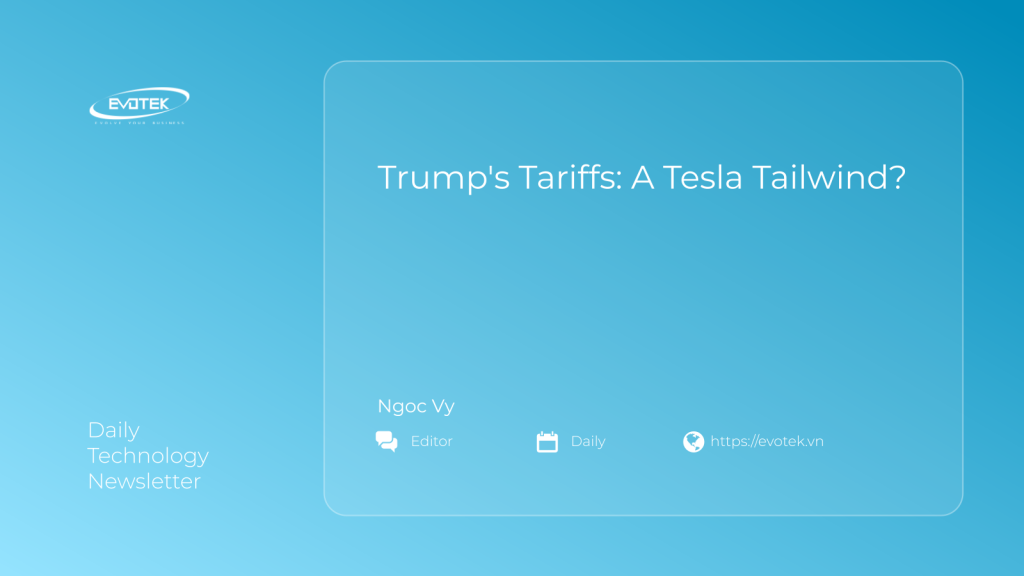President Trump’s recent imposition of a 25% tariff on imported vehicles and certain auto parts has sent ripples through the automotive industry. While the move aims to bolster domestic production, it inadvertently hands a potential advantage to Tesla, led by Elon Musk.
These tariffs, impacting even vehicles from North American neighbors, are poised to inflate the cost of both new and used cars. This development arrives at a critical juncture for Tesla, as the company navigates the repercussions of Musk’s controversial associations and grapples with fluctuating sales figures.
Tesla’s US Manufacturing Edge
Tesla strategically manufactures all vehicles destined for the North American market within the United States, specifically at its factories in Fremont, California, and Austin, Texas. This domestic production shields Tesla from the direct impact of the 25% vehicle import tariff.
While Tesla does import a portion of its components (estimated at 20-30%), mitigating the full impact, Musk acknowledged on X (formerly Twitter) that Tesla is “NOT unscathed.” However, the company’s proactive efforts to establish localized supply chains near its factories are now proving beneficial.
Rivals Face Uphill Battle
The tariffs place other automakers, especially those producing electric vehicles (EVs) outside the US, in a more challenging position. Ford, for instance, manufactures its popular Mustang Mach-E and Maverick hybrid in Mexico. General Motors builds its Blazer and Equinox EVs south of the border. Hyundai, enjoying increasing success in the U.S. EV market, imports nearly all of its EVs from South Korea.
EV startups Rivian and Lucid Motors, manufacturing in Illinois and Arizona respectively, avoid vehicle import tariffs. However, like Tesla, they import parts subject to tariffs, which could strain their finances, given they are still operating at a loss per vehicle.
A Potential Price Advantage?
This scenario could lead to price hikes for competing EVs exceeding those implemented by Tesla. This price separation could favor Tesla further when it unveils its anticipated lower-cost EV later this year.
Trump’s tariff decision follows weeks of uncertainty and deliberation. While the President has declared these tariffs “permanent,” their long-term stability remains uncertain.
Topics: electric vehicles, Elon Musk, EVs, Tesla, Transportation
About the Author: Sean O’Kane is a reporter covering the rapidly evolving business and technology of the transportation industry.

 日本語
日本語 한국어
한국어 Tiếng Việt
Tiếng Việt 简体中文
简体中文